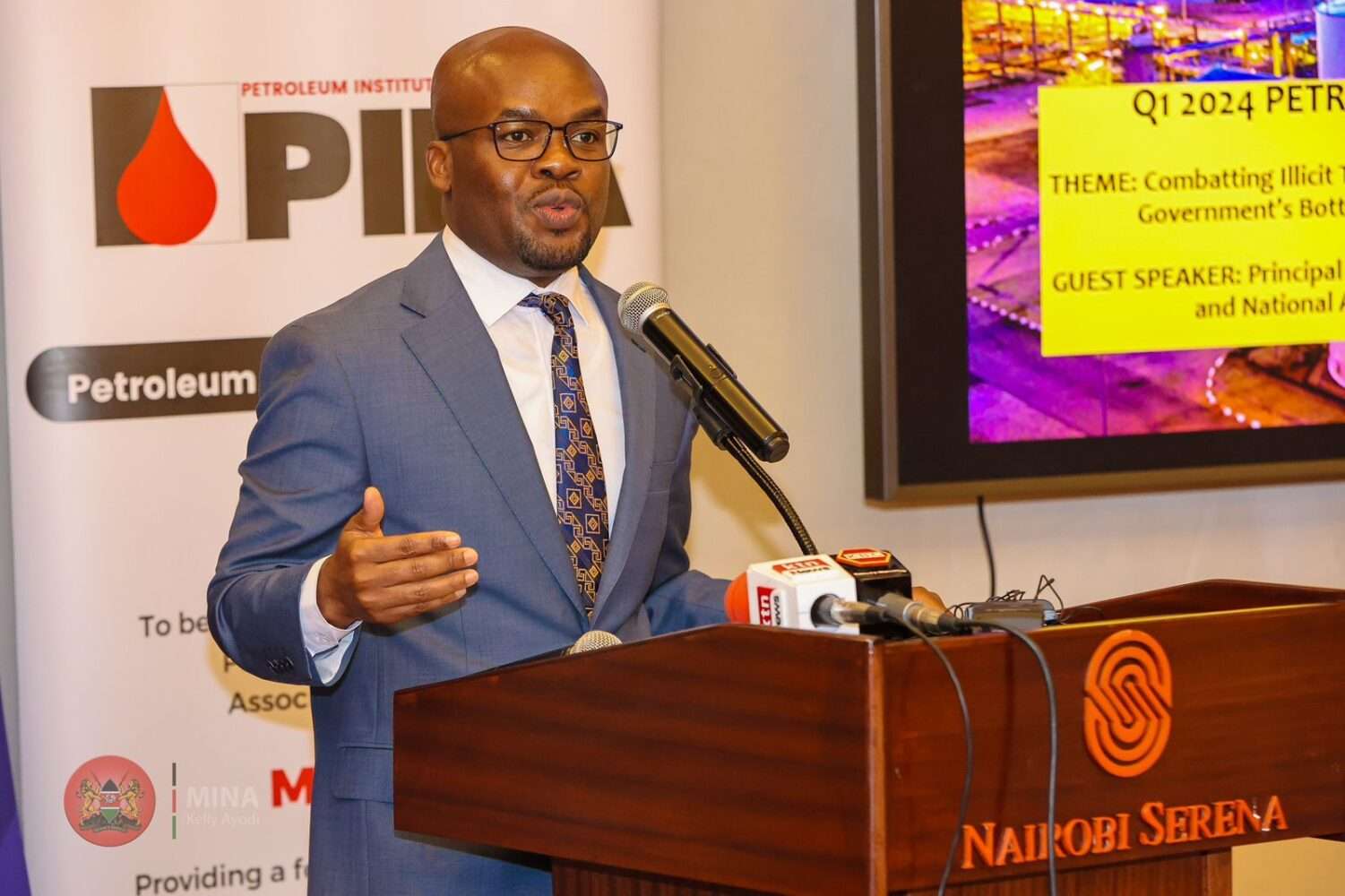Interior Principal Secretary Dr. Raymond Omollo on Monday, April 8 delivered a keynote address during the State of the Petroleum and Oil Industry Briefing at Serena Hotel, Nairobi.
In his address, PS Omollo underscored the critical role played by the energy sector as a key enabler of Kenya’s Vision 2030, as well as the Kenya Kwanza Government manifesto.
He said that the President William Ruto-led government was determined to obliterate illicit trade in petroleum products, with the vice not only affecting the petroleum sector but also Kenya’s national security.
“It usually goes unsaid but access to reliable, quality petroleum products is deeply intertwined with national security as it influences security operations both in terms of fuel for vehicles and aircrafts as well as power for police stations and communication systems, especially in far flung and hard to reach areas not yet connected to the national grid,” PS Omollo said.
He acknowledged that energy infrastructure — such as petroleum pipelines and storage facilities — are critical, and that protecting them from natural disasters, terrorist and cyber attacks, or sabotage is vital for overall national safety and security.
The petroleum industry in Kenya has seen tremendous growth in the number of outlets, storage and refiling facilities over the years. But this has brought with it numerous challenges with the biggest one being unauthorised refiling sites of petroleum products, specifically Liquified Petroleum Gas (LPG).
“These sites normally refill cylinders belonging to licensed brand owners illegally with a case and point being the fire tragedy that occurred in the residential area of Mradi Area, Embakasi that claimed people’s lives and left scores injured. The inability to trace the movement of petroleum products comes at a close second which presents serious safety concerns to consumers and the public at large,” PS Omollo noted.
Other emerging threats, according to PS Omollo, is the illegal petroleum facilities, dumping of export petroleum products, adulteration of petroleum products, and siphoning of petroleum products along our major highways and transport corridors.
He said: “The petroleum sector continues to harbour rogue business people while some elements within our law and enforcement agencies have been compromised thus the need to enhance intelligence-led enforcement, harden prosecution measures, and capacity building across enforcement agencies.”
In his speech, PS Omollo highlighted how the government has put in place elaborate measures to deal with rogue stakeholders in the energy industry.
“In conclusion, the fight against the illicit trade in the petroleum sector requires a multi-faceted approach involving collaboration between government agencies, industry players, the private sector, and the public. Together, we can ensure the safety of consumers and the integrity of our petroleum and oil sector for the sustainable development of our nation,” he concluded.












